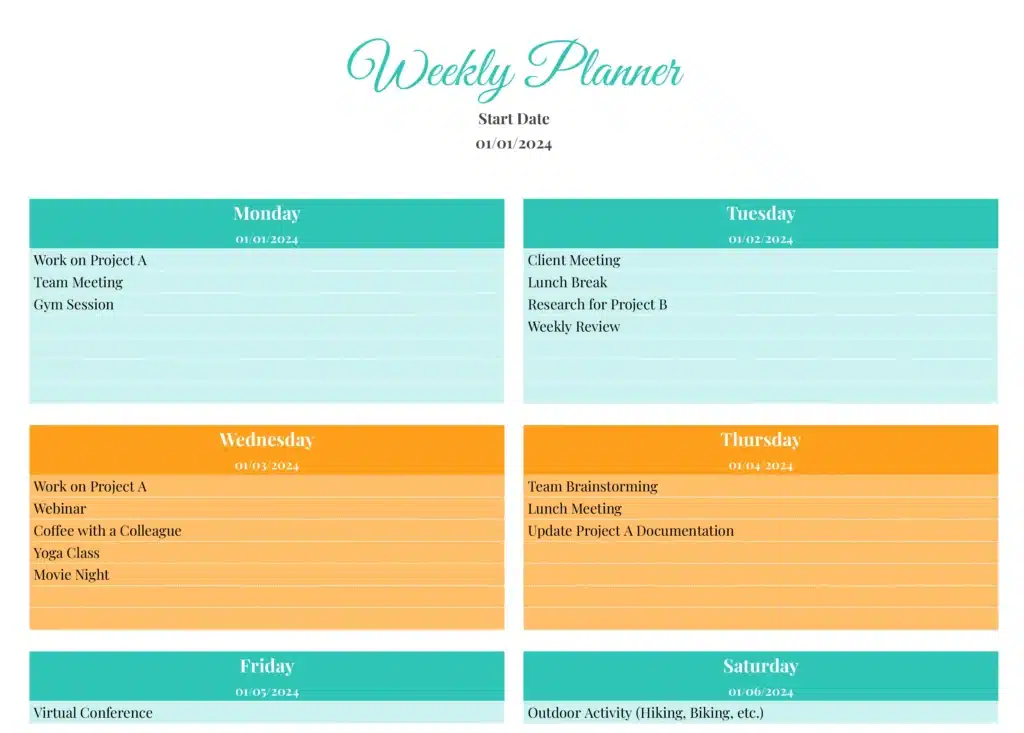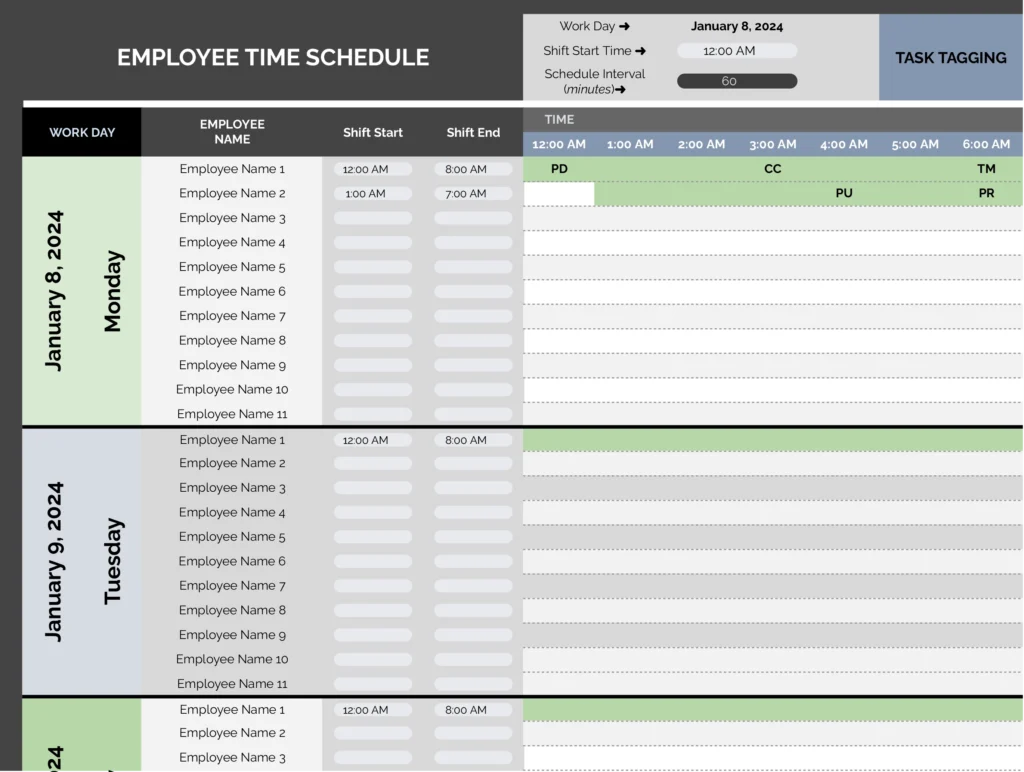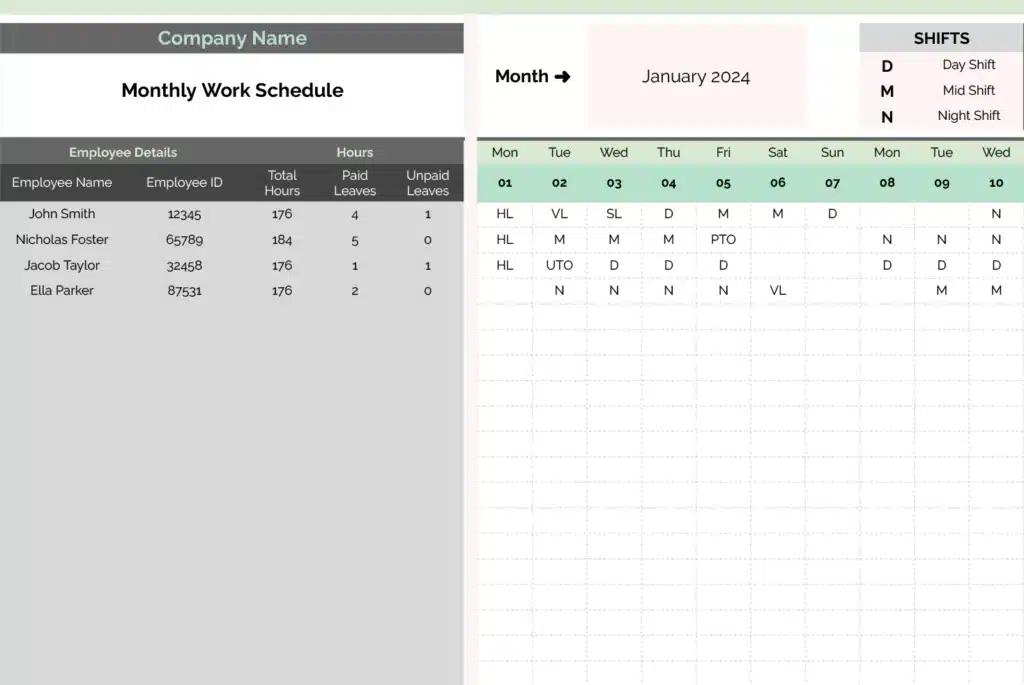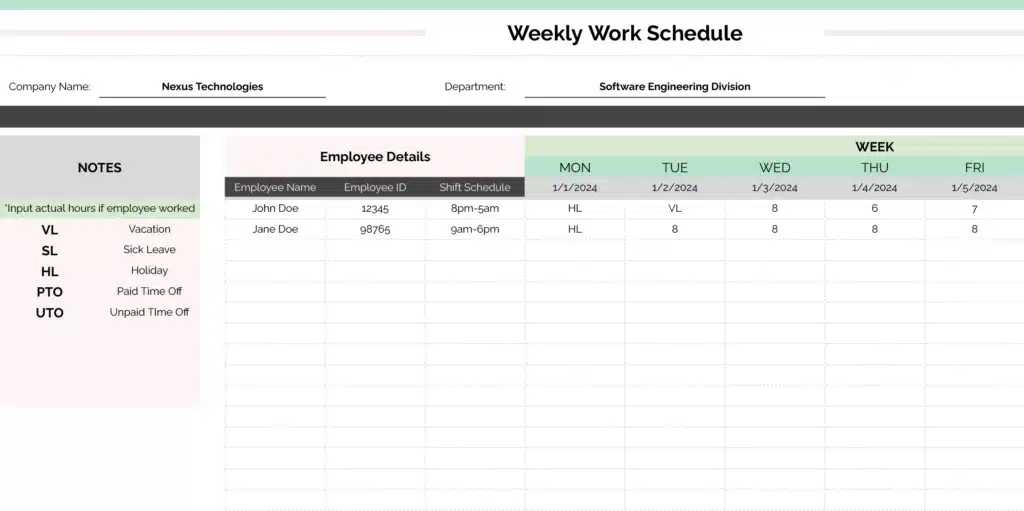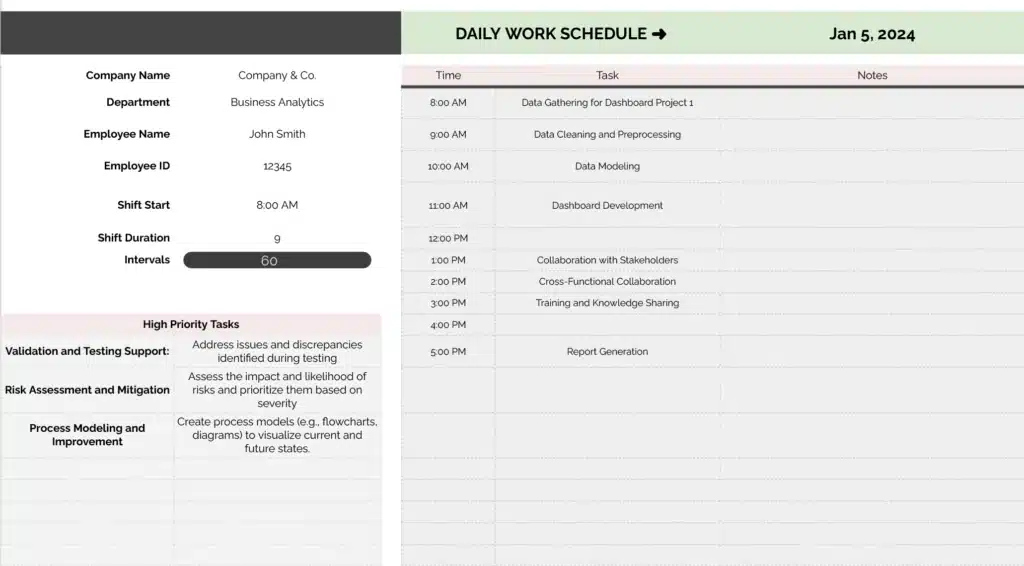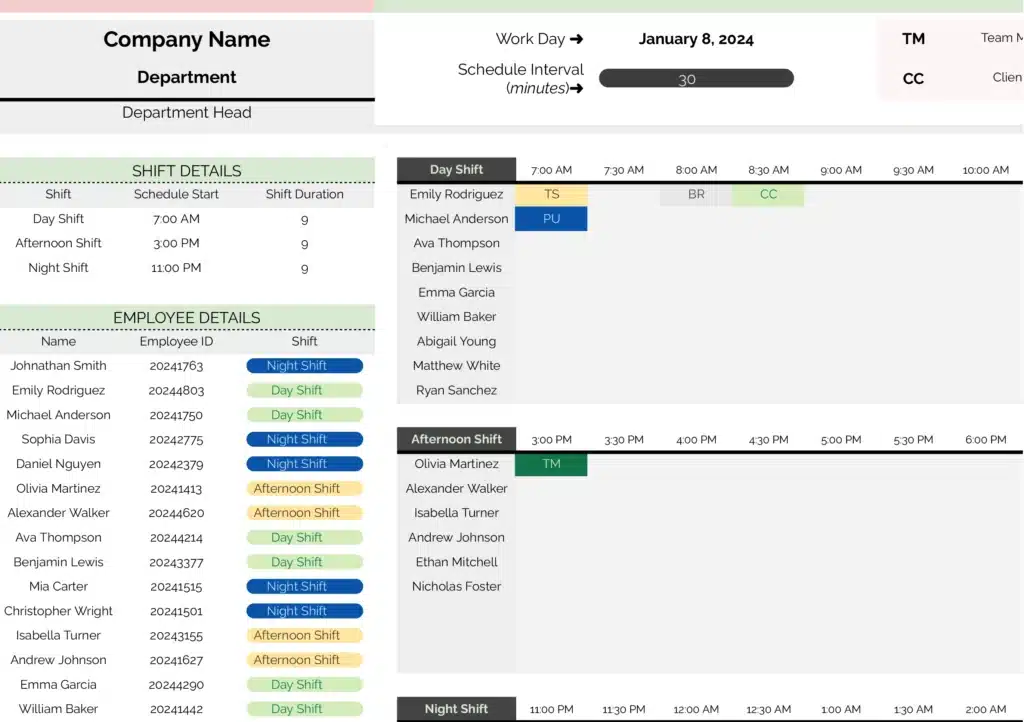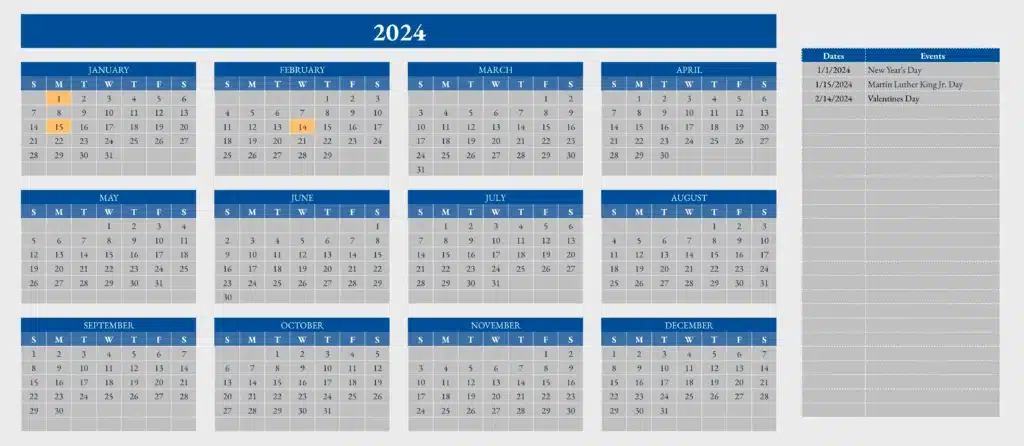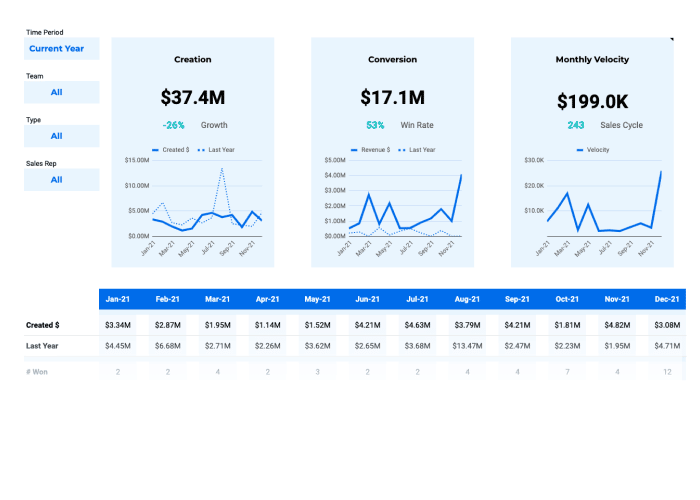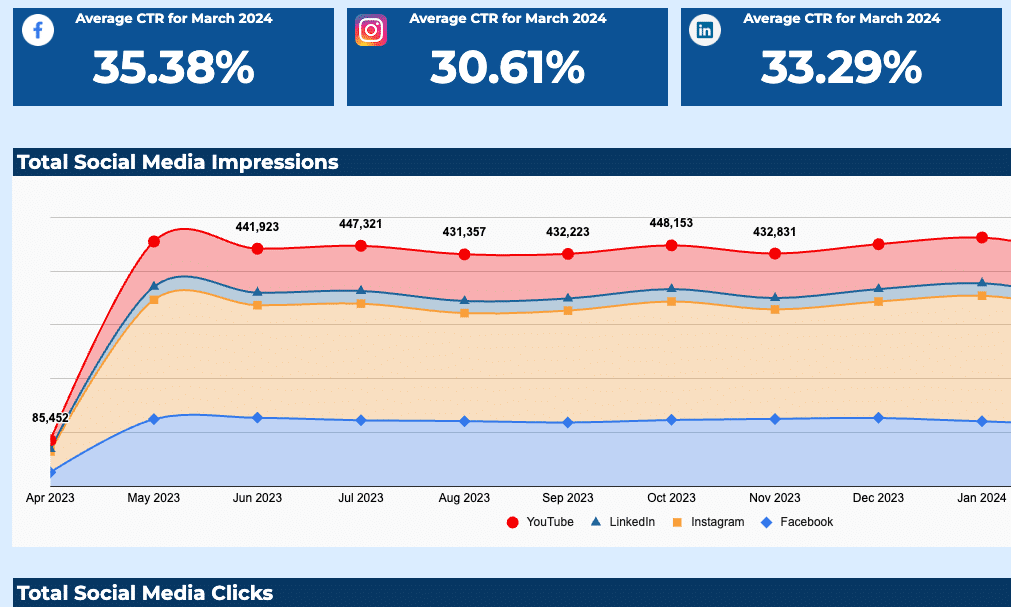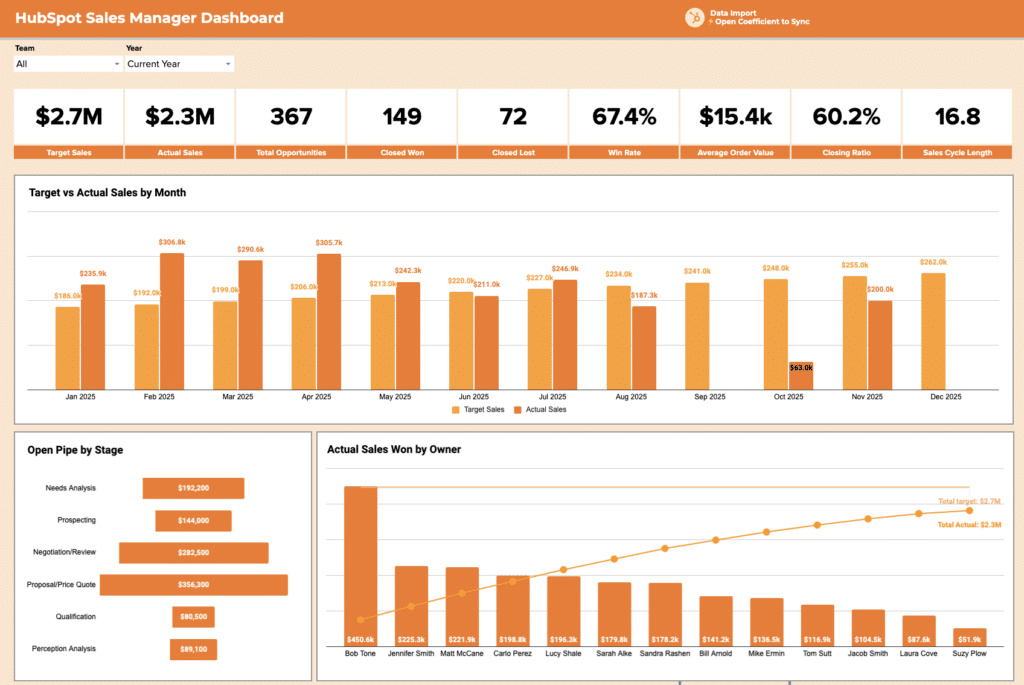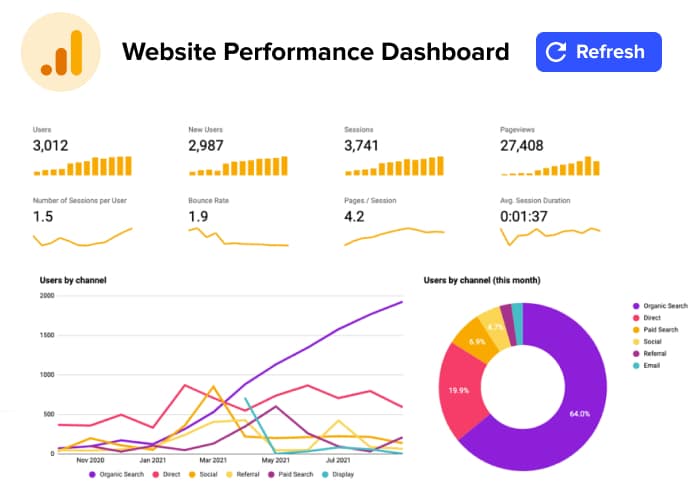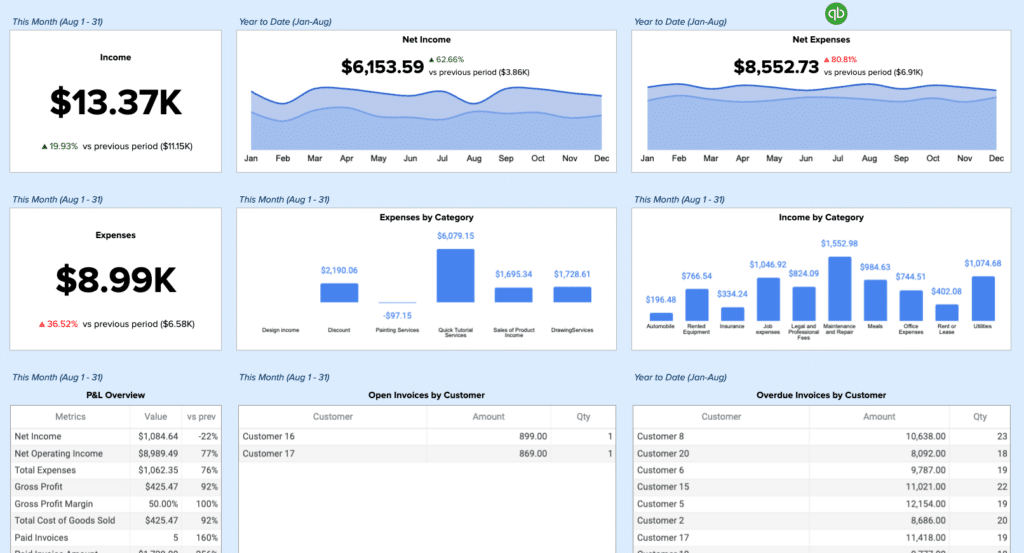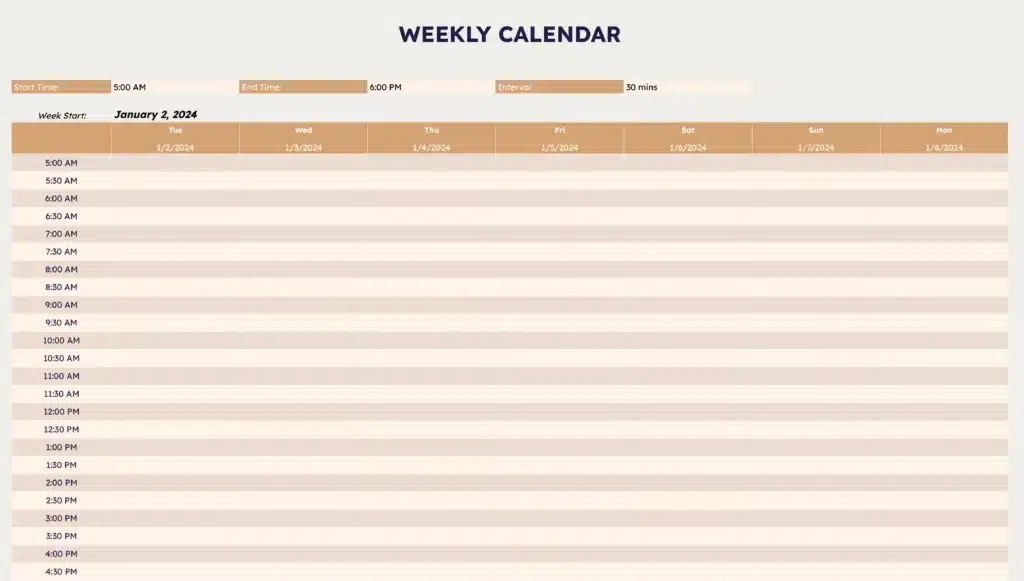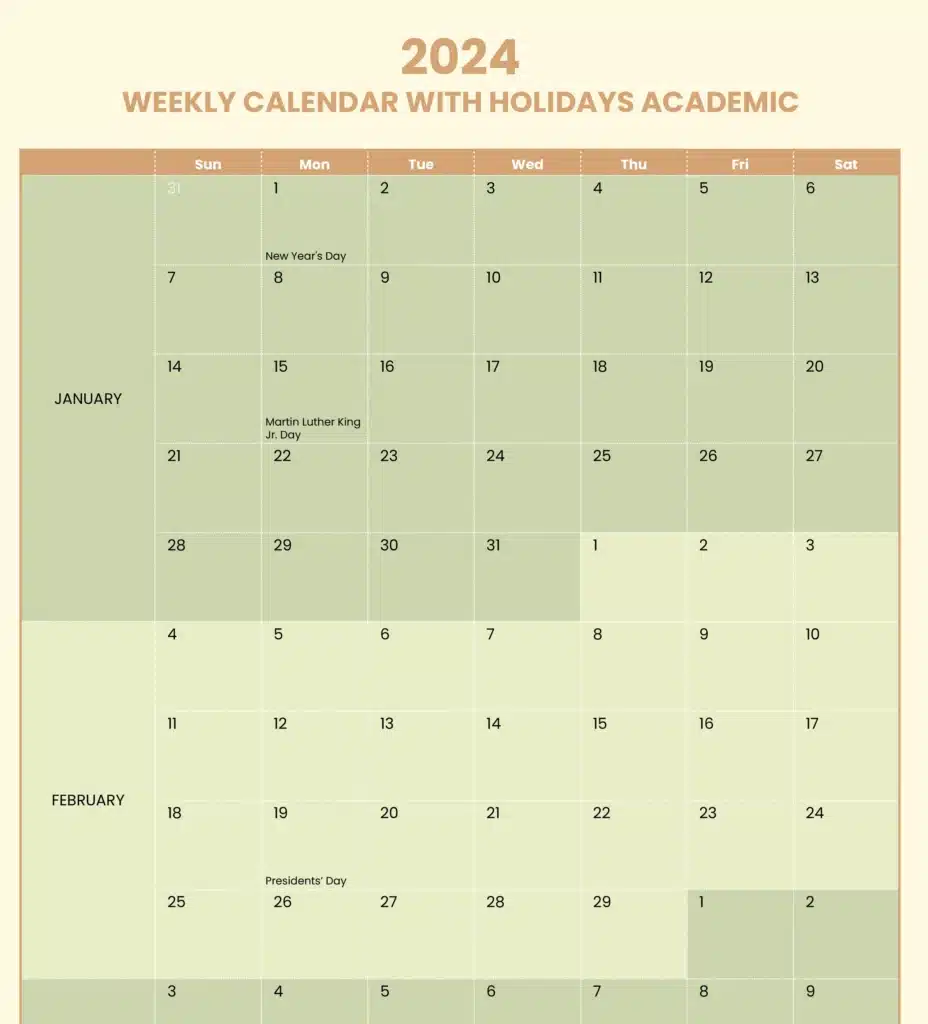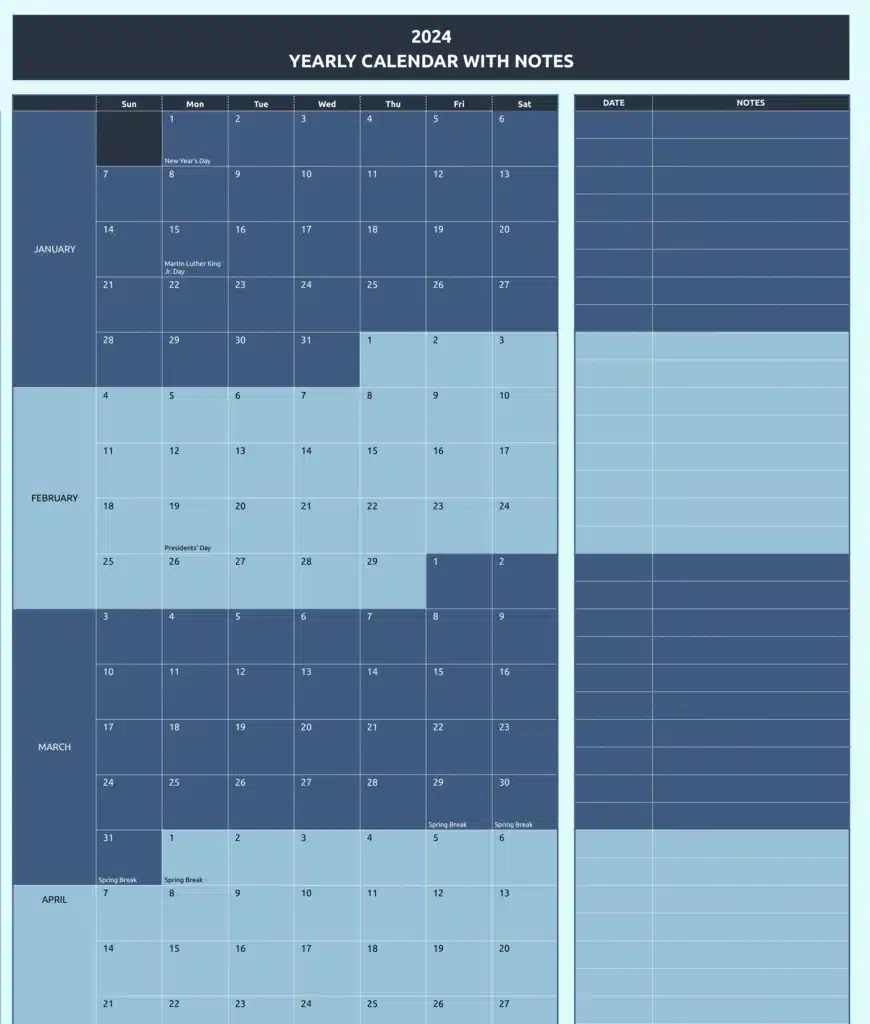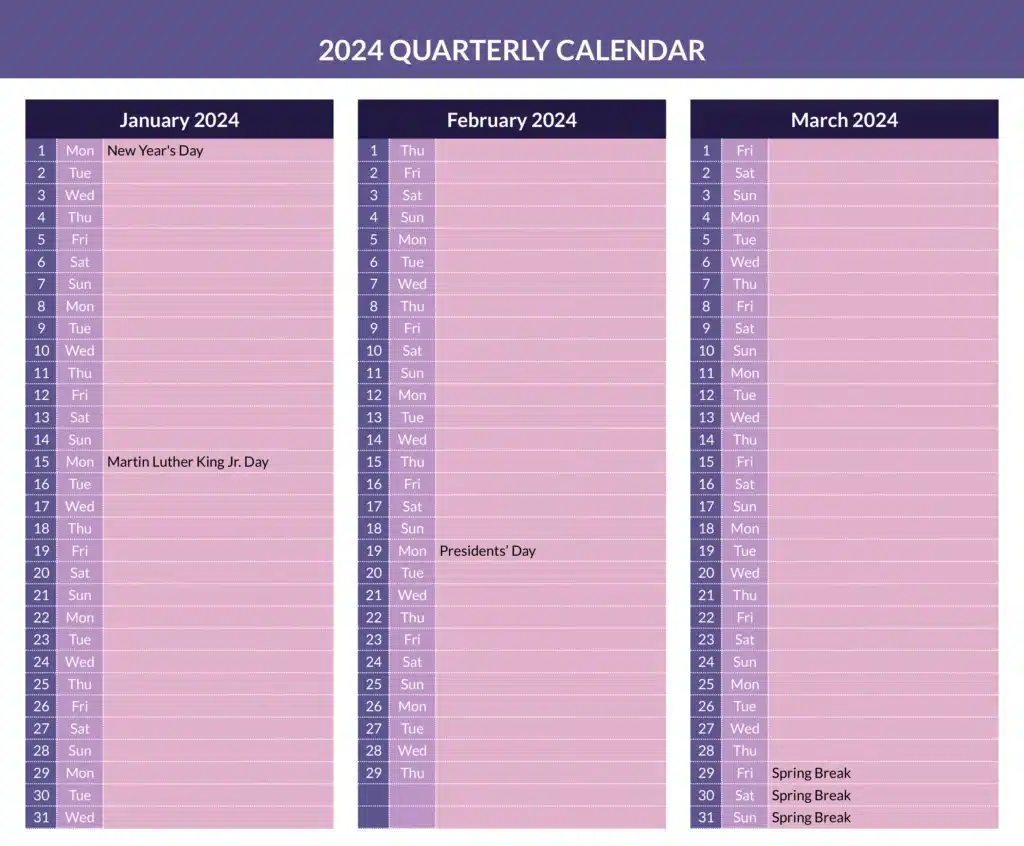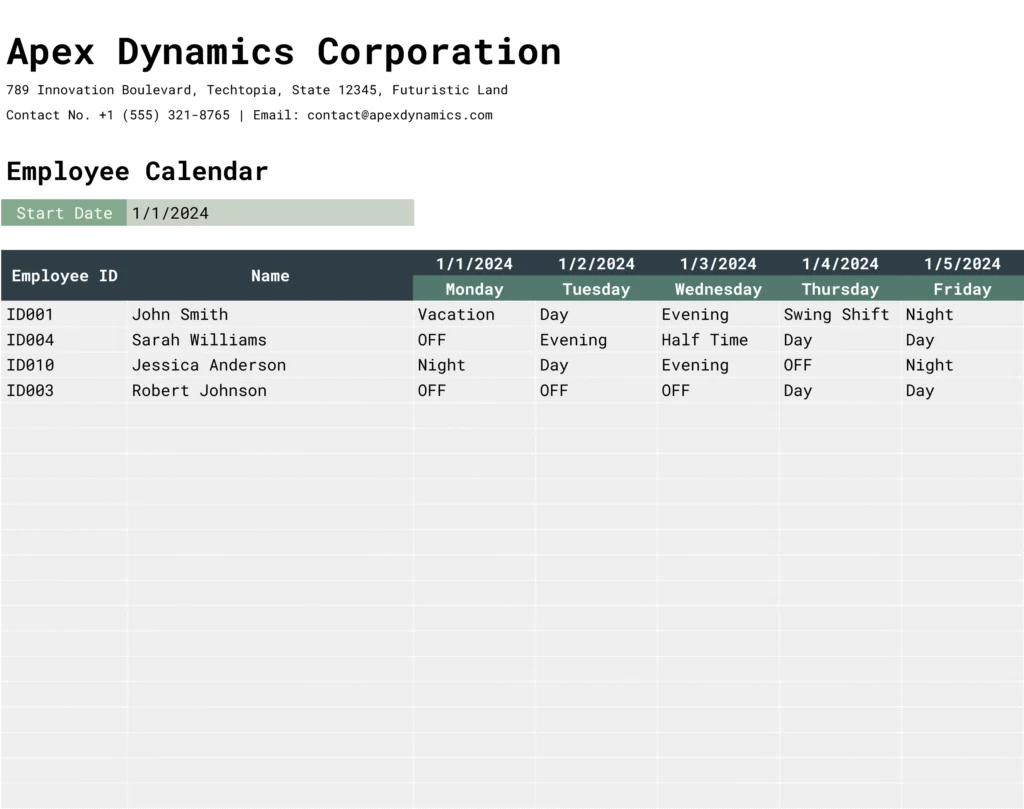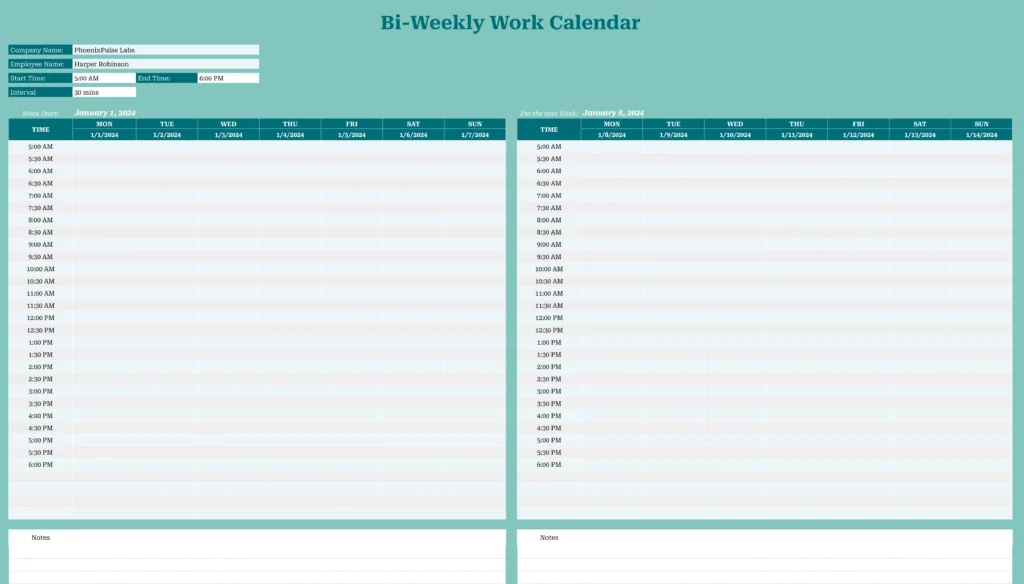Benefits of Using a Weekly Planner Template
- Enhanced Organization: Keep track of all your weekly appointments, tasks, and deadlines in one place.
- Improved Productivity: Plan your week ahead, allowing you to focus on completing tasks efficiently.
- Stress Reduction: Reduce the overwhelm of a busy schedule by having a clear plan for the week.
- Goal Setting: Use the planner to set weekly goals and monitor your progress towards achieving them.
Key Features of Our Weekly Planner Template
- Customizable Design: Tailor the planner to your specific needs with adjustable sections for different types of tasks and appointments.
- Easy-to-Use Format: Simple and intuitive layout, making it easy to add and view your weekly plans.
- Digital and Printable Options: Available in both digital formats for electronic use and printable formats for physical use.
- Additional Sections: Includes space for notes, reminders, and personal goals to keep all your weekly essentials in one place.
How to Utilize the Weekly Planner Template Effectively
- Start by inputting fixed commitments like meetings or classes, then add tasks and to-dos.
- Prioritize your tasks by urgency and importance.
- Allocate specific time slots for completing tasks to manage your time effectively.
- Review and update your planner regularly to reflect any changes or new tasks.
How Do I Make a Weekly Schedule Spreadsheet?
To create a weekly schedule spreadsheet:
- Open a Spreadsheet Program: Like Microsoft Excel or Google Sheets.
- Create Columns for Each Day: Label each column with a day of the week.
- Add Rows for Time Slots: Divide each day into time slots that suit your routine (e.g., hourly).
- Fill in Your Schedule: Input your fixed commitments and tasks into the appropriate time slots.
- Customize as Needed: Use colors or symbols to easily distinguish different types of activities.
Or choose one of the pre-designed week planner from Coefficient’s Templates Gallery.
How Do You Make a Realistic Weekly Schedule?
To create a realistic weekly schedule:
- Be Realistic About Time: Don’t overpack your schedule. Allow buffer time between tasks.
- Prioritize Tasks: Focus on what’s most important and what needs to be done first.
- Include Breaks: Schedule short breaks to rest and recharge, enhancing productivity.
- Stay Flexible: Be prepared to adjust your schedule as unexpected tasks or events arise.
How Do I Create a Weekly Schedule?
To create a weekly schedule,
- Identify Your Commitments: Start with fixed commitments like work hours, classes, or appointments.
- Add Tasks and Responsibilities: Include tasks, errands, and other responsibilities.
- Allocate Time for Rest and Leisure: Ensure to schedule some downtime for relaxation and hobbies.
- Review and Adjust: At the end of each day or week, review your schedule and make adjustments as needed.
Take the first step towards a more organized and productive week. Download our Weekly Planner Template now and start planning your time more effectively.
